-
Get Cloud GPU Server - Register Now!
Toggle navigation
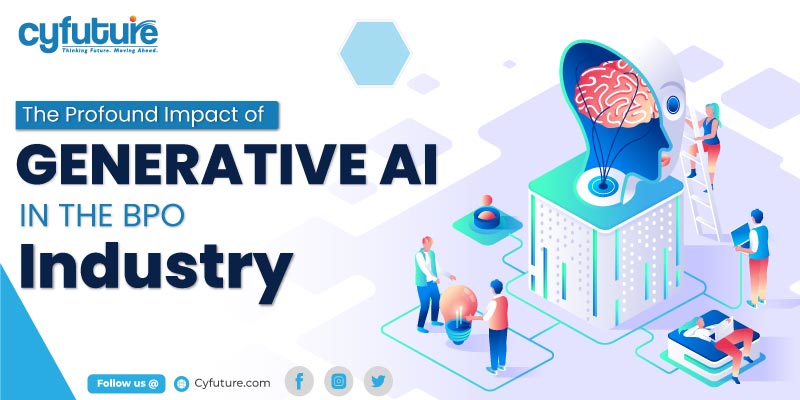
“Presently, we reside in a digitalized realm where AI continuously transforms the way we engage with computers, retrieve information, and conduct operations across diverse sectors.”
In a digital era characterized by an incessant surge in data, the transformative potential of Generative Artificial Intelligence (AI) stands as an awe-inspiring statistical testament. According to Gartner’s recent report, the global AI market is projected to reach a staggering valuation of $190 billion by 2025, a testament to the escalating adoption of cutting-edge AI technologies across industries. MarketsandMarkets, renowned for its meticulous market analyses, forecasts a CAGR of 42.5% for the AI sector between 2020 and 2026. These figures reflect an ongoing revolution, where the confluence of innovation and automation reshapes sectors as diverse as healthcare, finance, and manufacturing.
Amid this technological upheaval, the Business Process Outsourcing (BPO) industry finds itself at a pivotal juncture. Traditionally, the BPO sector has thrived as a facilitator of cost-effective solutions for various business functions. It has consistently leveraged human expertise to streamline processes, reduce overheads, and optimize efficiency. However, the integration of Generative AI into BPO practices introduces an entirely new paradigm. By harnessing the capabilities of machine learning, deep learning, and neural networks, Generative AI possesses the capacity to generate content, emulate human-like interactions, and even develop innovative solutions autonomously.
Generative AI’s significance in the BPO industry cannot be overstated. Consider the exponential growth of data—approximately 90% of the world’s data has been generated in just the past two years. This deluge necessitates advanced technologies to manage, analyze, and derive meaningful insights from this digital ocean. Generative AI, with its ability to synthesize data-driven narratives, produce natural language text, and even create multimedia content, emerges as a powerful tool for transforming raw data into actionable intelligence. The alliance of BPO with Generative AI opens avenues for businesses to elevate their customer interactions, revolutionize data-driven decision-making, and ultimately achieve competitive advantage in an increasingly dynamic marketplace.
As we delve deeper into the realms of Generative AI’s integration within the BPO landscape, this comprehensive exploration endeavors to illuminate the multifaceted dimensions of this symbiotic relationship. From redefining customer engagement to propelling innovation in service delivery, the ensuing sections will dissect the transformative potential that emerges at the crossroads of BPO and Generative AI. As the dynamics of business continue to evolve, the knowledge imparted herein promises to equip readers with invaluable insights into not just the future of BPO, but the future of business itself. Join us in this enlightening journey as we unravel the disruptive synergy of Generative AI and the BPO industry.
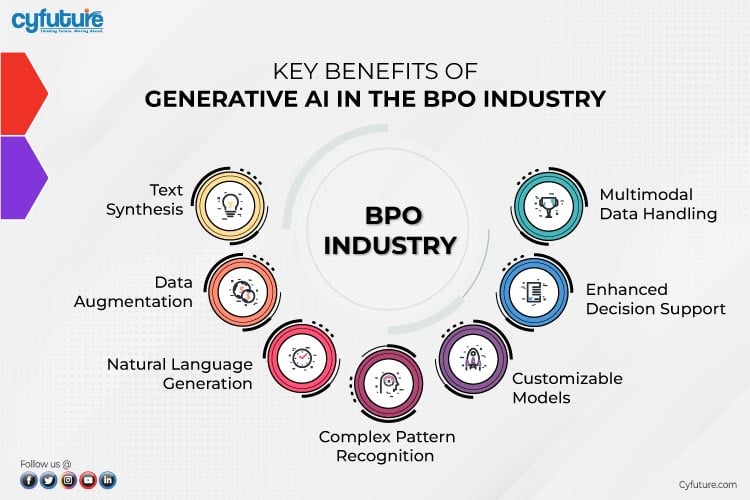
The integration of Generative Artificial Intelligence (AI) is catalyzing a remarkable transformation. Gartner’s research underscores this trajectory, projecting that by 2025, 40% of BPO providers will incorporate AI technologies to deliver enhanced value to clients. Meanwhile, Markets&Markets augments this narrative, estimating a 55.4% CAGR in the AI in BPO market during 2021-2026. This section unravels the profound impact of Generative AI on BPO processes, where innovation converges with efficiency, ultimately rewriting the norms of customer engagement and operational excellence.
Data Entry and Validation: Generative AI’s entry into BPO processes initiates a seismic shift in data management. A quintessential bottleneck, data entry, and validation demand significant resources and time. However, armed with machine learning algorithms, AI streamlines these operations, substantially reducing error rates and accelerating throughput. By 2023, Gartner predicts that AI-powered data entry will reduce data entry errors by 90%.
Customer Query Handling: The realm of customer support is dramatically rejuvenated with Generative AI’s prowess. Customer queries, a mainstay of BPO operations, can now be efficiently addressed by AI-powered chatbots. These intelligent virtual assistants provide instant resolutions, catering to customer demands 24/7. By 2024, it is anticipated that 70% of customer interactions will involve AI chatbots, according to Gartner.
Customized Communication through Chatbots: The age of one-size-fits-all customer interactions is making way for personalized engagements. AI-powered chatbots adeptly analyze customer preferences, previous interactions, and purchase history to tailor responses and recommendations. Gartner anticipates that by 2025, customer satisfaction rates will surge by over 30% due to AI-enabled personalized experiences.
Tailored Recommendations and Solutions: The deployment of Generative AI transcends script-based customer interactions. It evolves into proactive recommendation engines that not only address customer inquiries but also suggest tailored solutions and products. By 2023, Gartner projects that AI-driven recommendations will influence 40% of digital commerce revenue.
Automated Report Generation: The conventional process of compiling reports is ripe for transformation. Generative AI can autonomously generate comprehensive reports by analyzing disparate data sources and producing cohesive narratives. This accelerates decision-making processes and enhances data-driven insights. Markets&Markets forecasts a 45.2% CAGR for AI-driven automated report generation between 2021 and 2026.
Content Creation for Marketing and Support: Generative AI’s impact isn’t confined to operational realms. It extends to content creation for marketing and customer support. From crafting compelling marketing copies to generating informative support articles, AI efficiently produces content that resonates with audiences. By 2024, Gartner predicts that 30% of digital content will be authored by AI.
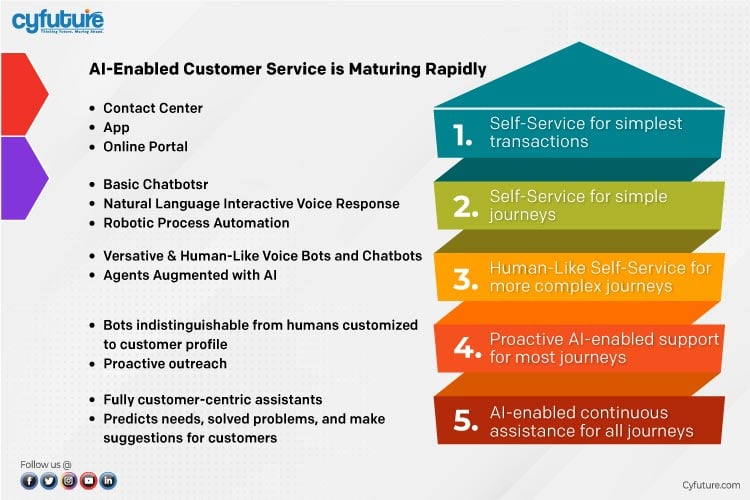
The convergence of Generative Artificial Intelligence (AI) and the Business Process Outsourcing (BPO) industry is poised to revolutionize operational dynamics, ushering in a new era of enhanced efficiency and substantial cost savings. Gartner’s research projects an impressive narrative, forecasting that by 2024, 70% of enterprises will utilize AI technologies to augment at least one of their primary business functions. Meanwhile, Markets&Markets lends further credence to this transformation, estimating that AI in the BPO market will reach $1.4 billion by 2025, with a CAGR of 59.2% between 2020 and 2025. This section delves into the manifold ways through which the amalgamation of Generative AI and BPO not only optimizes efficiency but also paves the way for substantial financial gains.
Minimized Data Inaccuracies: The infusion of Generative AI within BPO processes fundamentally alters the landscape of data management. The propensity for human error in data entry, a challenge long faced by the industry, is drastically mitigated. AI’s impeccable accuracy minimizes inaccuracies, fortifying the integrity of data repositories. Gartner estimates that AI-enabled data entry and validation can reduce errors by an impressive 80% by 2025.
Improved Compliance with Regulations: The regulatory landscape that envelops BPO operations is intricate and ever-evolving. Generative AI, with its precision and ability to follow pre-defined protocols, significantly aids in adherence to regulatory guidelines. This capability not only minimizes potential fines but also enhances the trustworthiness of BPO services. By 2023, Gartner predicts that AI-powered compliance checks will contribute to a 25% reduction in regulatory violations.
Continuous Availability of AI-Powered Agents: The traditional BPO model often grappled with time zone differences and the limitations of human workforce availability. Generative AI unchains BPO operations from temporal constraints, ensuring round-the-clock service through AI-powered virtual agents. This not only augments customer experiences but also enhances operational efficiency. According to Markets&Markets, AI-driven 24/7 availability is expected to boost BPO efficiency by over 30% by 2024.
Easy Adaptation to Varying Workloads: The flexibility to scale operations in response to fluctuating workloads is a hallmark of successful BPO endeavors. Generative AI affords seamless scalability, as virtual agents can be quickly deployed or scaled down based on demand, without the need for extensive human onboarding. Gartner’s projections suggest that by 2023, AI’s adaptability will lead to a 40% reduction in underutilized resources.
Allocation of Human Agents to Complex Tasks: Generative AI’s integration doesn’t displace human agents; rather, it amplifies their capabilities. Mundane tasks are automated, freeing up human agents to focus on intricate, value-added assignments that demand cognitive and emotional intelligence. This reallocation optimizes human resources, leading to enhanced operational efficiency. According to Gartner, by 2025, 50% of human agents’ time will be freed up by AI-powered automation.
Skill Enhancement for Managing AI-Driven Processes: The influx of AI mandates upskilling of the workforce to manage these advanced technologies. BPO companies that invest in training their employees to navigate AI-driven processes will be better poised to harness the full potential of Generative AI. By 2024, Gartner anticipates that AI-driven skill enhancement initiatives will lead to a 25% increase in workforce productivity.
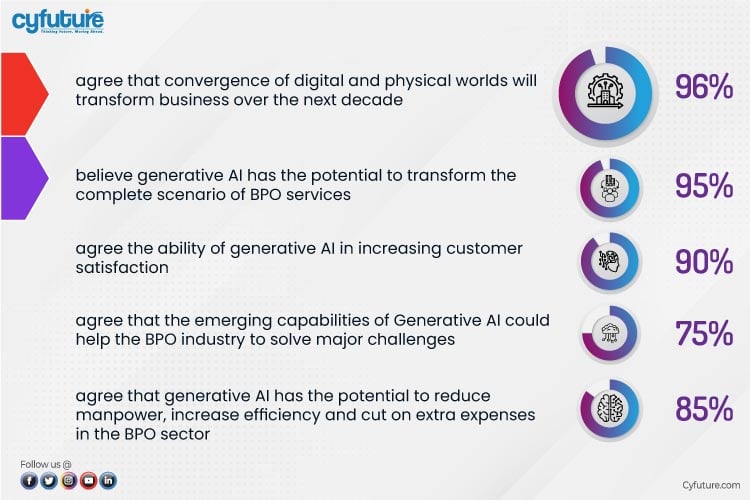
As the profound integration of Generative Artificial Intelligence (AI) and the Business Process Outsourcing (BPO) industry reshapes the operational landscape, it also brings forth a constellation of challenges and future implications that warrant meticulous consideration. Gartner’s research accentuates the urgency of these concerns, predicting that by 2025, 30% of AI projects will be hampered by inefficiencies in ethical considerations. Meanwhile, Markets&Markets underscores the dynamic nature of this transformation, estimating a compound annual growth rate (CAGR) of 42.5% for the AI in BPO market between 2020 and 2026. This section delves into the pivotal challenges that demand resolution and the nuanced ramifications that accompany the symbiosis of Generative AI and BPO.
Handling Sensitive Customer Data: The amplification of AI within BPO processes necessitates meticulous attention to the handling of sensitive customer data. With data breaches and cyber threats becoming increasingly sophisticated, the ethical responsibility to safeguard customer information is paramount. Gartner forecasts that by 2023, 80% of businesses will be held liable for compromised customer data due to AI vulnerabilities.
Ensuring Transparent AI Decision-Making: The ‘black box’ nature of AI algorithms poses ethical dilemmas, particularly when AI-driven decisions impact customers’ lives. Ensuring transparency in AI decision-making mechanisms becomes imperative to establish trust. By 2024, Gartner predicts that 75% of AI projects will incorporate interpretability techniques to address ethical concerns.
Reskilling Human Agents for Higher-Value Tasks: The infusion of Generative AI, while amplifying efficiency, necessitates a shift in the roles of human agents. Reskilling becomes critical to equip agents with capabilities that complement AI-driven automation. Gartner anticipates that by 2025, 35% of BPO employees will require reskilling to enhance their collaborative potential with AI technologies.
Nurturing a Hybrid AI-Human Workforce: Striking a harmonious balance between AI and human capabilities emerges as a delicate art. BPO organizations need to foster an environment that facilitates the collaboration of AI and human agents, leveraging each entity’s strengths. Markets&Markets projects that by 2023, 70% of BPO companies will implement hybrid AI-human models for seamless workflow.
Anticipating Further Advancements in AI: The landscape of AI is marked by rapid evolution and innovation. BPO companies must anticipate and adapt to the continual advancements in AI technologies to remain competitive. Gartner asserts that by 2024, 65% of BPO providers will struggle to keep pace with AI advancements, necessitating proactive strategies.
Staying Ahead of Industry Trends and Innovations: As AI permeates BPO processes, staying attuned to industry trends and innovations is imperative. Companies must proactively embrace emerging technologies to maintain relevance in a dynamically evolving landscape. Gartner forecasts that by 2023, 50% of BPO providers that do not adopt AI will lag behind competitors in terms of service quality.
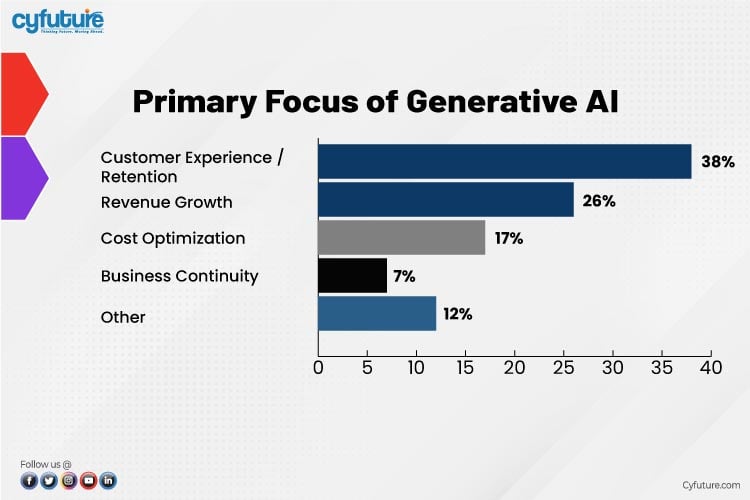
In the ever-evolving landscape of business process outsourcing (BPO), the synergy between Generative Artificial Intelligence (AI) and industry operations resonates as a paradigm-shifting force. As we reflect on this transformative journey, it’s evident that the statistics laid bare by Gartner and Markets&Markets are not mere numbers; they embody a narrative of disruption and promise.
The seamless automation of repetitive tasks, the personalized touch of AI-driven customer interactions, and the prolific generation of content mark just the tip of the iceberg. The exponential gains in efficiency and cost savings not only redefine BPO’s value proposition but set the stage for an era where innovation and optimization converge in unparalleled harmony.
While challenges emerge in the ethical, workforce, and technological spheres, they serve as compass points guiding the way forward. As industry pioneers, we’re entrusted with the responsibility of ushering in this transformative fusion while addressing these concerns with steadfast resolve. This voyage doesn’t end here; rather, it propels us into an era brimming with unprecedented growth and innovation.
In the wake of these revelations, businesses are urged to seize this opportunity for competitive distinction. Embrace Generative AI not merely as a technological augmentation, but as a strategic cornerstone that propels BPO operations to new heights of excellence. The embrace of AI isn’t just a choice; it’s imperative for businesses aspiring to lead the pack in the dynamic realm of BPO. The convergence of human ingenuity and AI’s prowess is poised to script the next chapter of BPO history—one where innovation knows no bounds, efficiency reaches unparalleled heights, and customer experiences are elevated to realms previously uncharted.